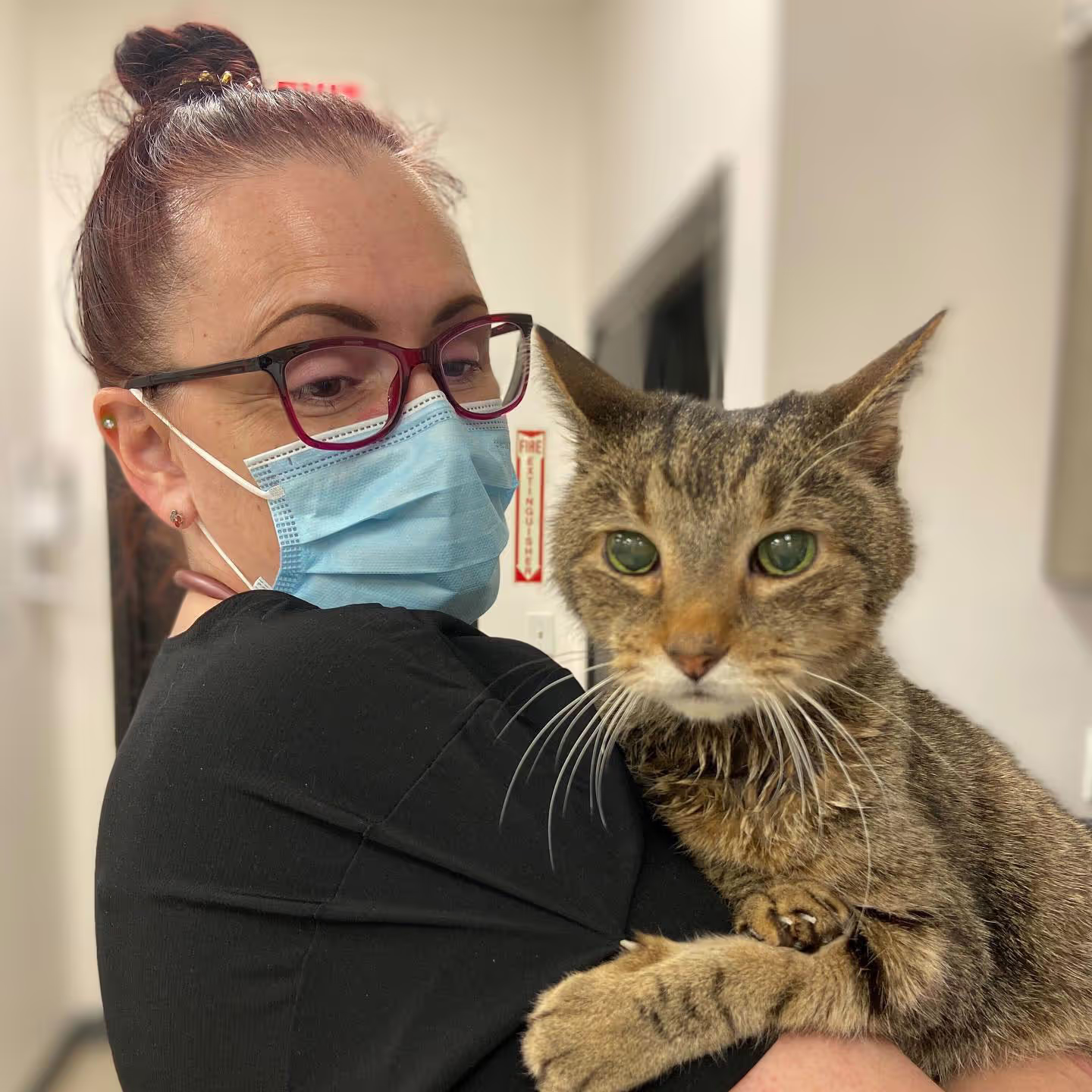Most Frequently Asked Questions
Your Pet Care Questions Answered
Questions about Meadowlands Vet Hospital
You can book an appointment anytime online, or give us a call at 201-646-2008 during business hours, and our team will be happy to help you find a time that works best for your schedule.
We're open Mon-Fri 9 am - 7 pm; Saturday 9 am - 6 pm; Sunday 10am - 6 pm.
We suggest you call us at 201-646-2008 to schedule an appointment; if your pet is sick, we'll do our very best to get you in quickly.
Simply call your previous vet and have medical records emailed to us at "info @ meadowlandsvet.com" (spaces added to avoid spammers!). You can also tell our front desk staff the name of your old vet, and we'll gladly call for you.
Yes, we sure do! We can work with practically any pet insurance company, so whether you have Trupanion, Nationwide, Embrace, or whatever else, we got you.
Yes! We are accredited to issue international health certificates for pets traveling abroad. Because the requirements vary by country and can take time to complete, we recommend contacting us as early as possible, ideally several weeks before your planned departure. Our team will help guide you through the process and ensure your pet meets all necessary travel regulations.
Medical Questions
Heartworm preventatives are not 100% effective. Sometimes a dose gets missed, spit out, vomited or is just not adequately absorbed, resulting in inadequate protection. Heartworm testing is a safeguard against your pet suffering from heartworm disease without your knowledge. Furthermore, giving some types of heartworm preventative to a dog that has heartworm infection may actually result in a shock-like reaction due to the rapid death of immature heartworms.
Your veterinarian will determine which vaccinations are appropriate for your pet based on individual factors such as lifestyle and health status. It is commonly recommend that dogs be vaccinated against rabies, distemper, Lyme, and Leptospirosis parvovirus and that cats be vaccinated against rabies and panleukopenia (feline distemper). Additional vaccines, such as feline leukemia virus (FeLV), feline immunodeficiency virus (FIV), and Bordetella (kennel cough), Lyme, and Leptospirosis may be recommended.
It is recommended that a fecal sample be provided at annual/wellness visits, new puppy/kitten exams, and when GI symptoms are present. Only tapeworms and roundworms are visible to the naked eye. On some occasions diarrhea, vomiting, and weight loss are symptoms of intestinal worms but many intestinal parasites go undetected without running intestinal parasite tests. Some intestinal parasites are zoonotic, meaning they are transmittable to humans making routine intestinal parasite testing important to the health of pets AND humans.
If no skin condition is present, you can bathe your dog every 4-6 weeks.
Pre-anesthetic blood testing allows us to evaluate your pet’s basic organ function. The testing could warn us of a condition not obvious on physical exam. It may indicate that we should take extra precautions with your pet’s anesthesia or surgery, or avoid a procedure altogether until the discovered problem can be corrected.
It is not permitted by law to diagnose by phone -- our veterinarians must physically examine a your pet. A physical exam is necessary so your veterinarian can provide an accurate diagnosis and proper treatment. Treating a pet for the wrong disease or condition will cost more in the end and could be harmful or even deadly to your pet.
Subscribe to our Newsletter!

Looking for a great veterinarian near you? We'd be honored to care for your pet. Please give us a call at 201-646-2008. Please note - if you are in need of veterinary cardiology care, we recommend you contact Dr. Justin Carlson at The Animal Cardiology Center at (212) 722-0449 or visit them at www.taccvets.com










